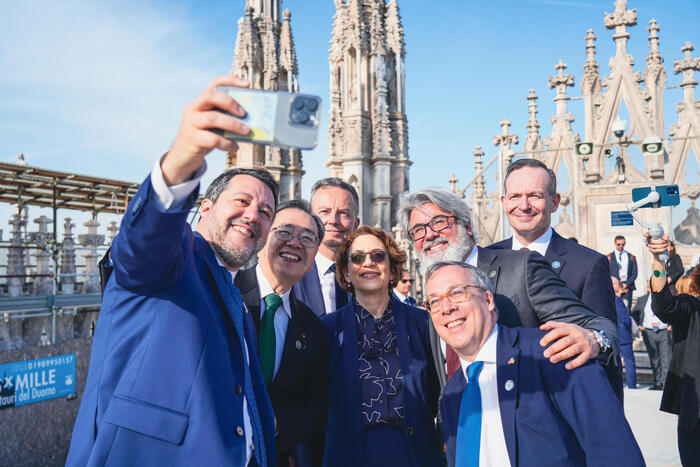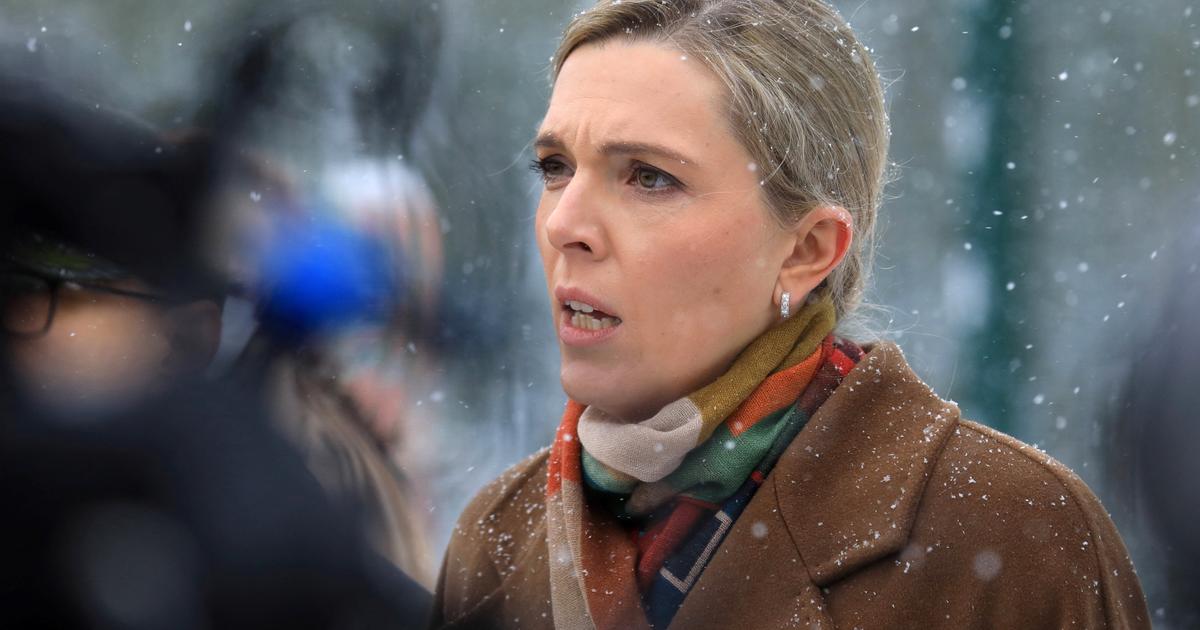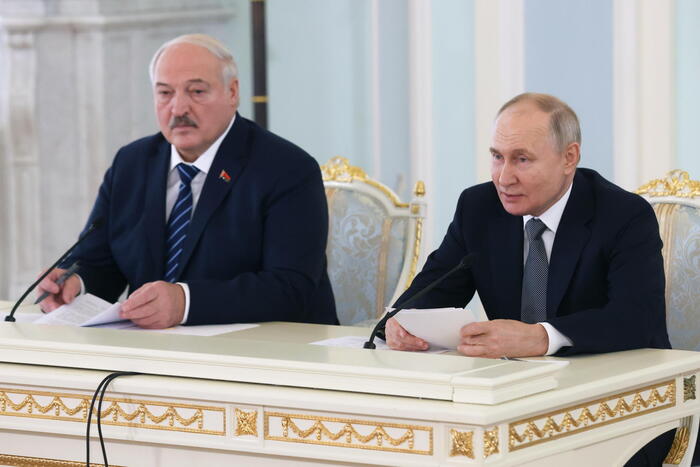Baerbock's G7 ministers "never" want to recognize Russia's border shift - dig at Belarus
Created: 05/14/2022, 15:01
By: Astrid Theil
Federal Foreign Minister Annalena Baerbock with her counterparts at the G7 summit in Weißenhäuser Strand.
© Kay Nietfeld/dpa
At two G7 meetings, the foreign and agricultural ministers of the seven most important industrialized countries discussed the Ukraine war and its global effects.
Weißenhaus/Stuttgart - The meeting of foreign ministers of the G7 in Schleswig-Holstein started on Thursday.
Until Saturday, the foreign ministers of the seven most important industrialized countries primarily discussed the Ukraine war* and its global effects.
Germany currently chairs the G7.
In addition to Germany, the group includes the USA, Canada, France, Great Britain, Italy and Japan.
The highlight of the German presidency will be a summit meeting chaired by Federal Chancellor Olaf Scholz (SPD)* from 26 to 28 June at Schloss Elmau in Bavaria.
Germany was represented at the G7 foreign ministers' meeting by Foreign Minister Annalena Baerbock (Greens)*.
US Secretary of State Victoria Nuland attended for the USA because US Secretary of State Antony Blinken was infected with Corona.
The other foreign ministers of the G7 countries are Jean-Yves Le Drian (France), Luigi Di Maio (Italy), Elizabeth Truss (Great Britain), Hayashi Yoshimasa (Japan) and Mélanie Joly (Canada).
At times, Ukrainian Foreign Minister Dmytro Kuleba and his Moldovan colleague Nicu Popescu also attended the meeting as guests.
G7 Summit: Focus on Ukraine War and Its Impact
The focus of the meeting was the Ukraine war and its international consequences.
The G7 group announced on Saturday that it would "never" accept the new borders that Russia is seeking to draw from the war of aggression in Ukraine.
"We will never recognize borders that Russia has tried to shift through military aggression," said the joint statement of the G7 foreign ministers, which they published at the end of their deliberations in Wangels, Schleswig-Holstein.
The G7 will maintain its "support for the sovereignty and territorial integrity of Ukraine - including Crimea - and all states," the ministers said.
They also called on Moscow to stop fighting.
Sharp criticism was also leveled at Belarus and its role in the Ukraine war.
The leadership in Minsk must “stop allowing Russian aggression and honor its international obligations”.
The main focus of the consultations was the effects of the Ukraine war on food security.
Ukraine war: famine should be prevented
"Russia's war of aggression against Ukraine, as well as Russia's unilateral actions restricting Ukrainian agricultural exports, are leading to sharp increases in prices on commodity markets," the ministers said in a statement.
This is already leading to a threat to “global food security”.
Russia urged the ministers to "immediately end its attacks on Ukraine's vital transport infrastructure, including ports so that they can be used for the export of Ukrainian agricultural products."
The G7 group is examining alternatives to shipping grain from Ukraine to break the Russian blockade in the area.
After there were problems with rail transport via Romania due to the different track widths of the railways, exports via the Baltic ports were being examined, said Foreign Minister Annalena Baerbock (Greens) on Saturday at the end of the G7 meeting.
But even when traveling via the Baltic States, the prerequisites would first have to be clarified as to how the ports there could be reached.
G7 meeting: Ministers of agriculture are looking for solutions in the current crisis
The agriculture ministers of the G7 countries* also devoted themselves specifically to this topic.
The meeting of agriculture ministers took place on May 13th and 14th in Stuttgart.
The ministers of the leading industrial nations exchanged views on important and global aspects of the agricultural and food sector.
The group of ministers led by German head of department Cem Özdemir (Greens) discussed with Ukrainian Minister of Agriculture Mykola Solskyj on Friday how the war-torn country can be helped.
The main focus was on alternative export routes for grain via road, rail and the Danube.
Ukraine is one of the largest grain producers in the world, but is currently unable to export anything due to the Russian blocked ports in the Black Sea.
There is a risk of famine in many countries.
Due to security concerns, the Agriculture Ministers' Conference was continued at a different venue in Stuttgart than originally planned.
The G7 foreign ministers' meeting on the Baltic Sea ended without further protests.
(at/dpa) *Merkur.de is part of IPPEN.MEDIA














